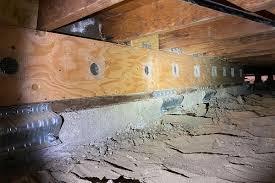How Long Does Asphalt Sealant Take to Dry

Asphalt sealant, also known as seal coating, is a protective layer applied to asphalt surfaces such as driveways, parking lots, and roads. It helps extend the lifespan of the asphalt by protecting it from the damaging effects of UV rays, water, oil, and other chemicals. One of the most frequently asked questions about asphalt sealcoating is, "How long does it take to dry?" The drying time for asphalt sealant can vary depending on several factors, including weather conditions, type of sealant, and application thickness. In this guide, we’ll explore these factors in detail to help you understand how long it will take for your asphalt sealant to dry properly.
1. Understanding Asphalt Sealant Drying Time
Asphalt sealant drying time is often referred to as "curing time," which is the period it takes for the sealant to harden and fully bond with the asphalt surface. On average, asphalt sealant can take anywhere from 24 to 48 hours to dry sufficiently for light use, such as foot traffic. However, for full curing, where the surface can withstand vehicle traffic without damage, it can take up to 72 hours or longer.
2. Factors Affecting Asphalt Sealant Drying Time
Several factors influence the drying time of asphalt sealant:
Weather Conditions
Temperature: Warm weather accelerates the drying process. Ideally, temperatures should be between 50°F and 90°F (10°C to 32°C) for optimal drying. Cooler temperatures can slow down the curing process, while extremely high temperatures can cause the sealant to dry too quickly, potentially leading to cracking.
Humidity: High humidity levels can increase drying time. Asphalt sealants dry faster in low-humidity environments because moisture in the air can inhibit evaporation. In areas with high humidity, it is advisable to allow extra time for the sealant to cure.
Sunlight and Wind: Direct sunlight and steady airflow can speed up the drying process by promoting evaporation. On the other hand, cloudy or overcast conditions can slow down the process due to reduced UV exposure.
Type of Sealant Used
There are different types of asphalt sealants, each with its own drying time:
Coal Tar Sealant: This is one of the most commonly used sealants due to its durability and resistance to oil and gas. However, it can take longer to dry, usually between 24 to 48 hours, depending on weather conditions.
Asphalt Emulsion Sealant: This type is more environmentally friendly and dries faster than coal tar sealant, typically within 24 to 36 hours.
Acrylic Sealant: Acrylic-based sealants are popular for their quick-drying properties, often taking less than 24 hours to dry. They are also resistant to UV rays but can be more expensive than other types.
Oil-Based Sealant: These sealants provide excellent protection but can take longer to cure fully, sometimes up to 48 hours or more.
Application Thickness
The thickness of the applied sealant also plays a crucial role in drying time. A thicker layer will take longer to dry compared to a thinner coat. Professionals often recommend applying two thin coats rather than one thick coat. This not only ensures a more even application but also allows each layer to dry more quickly.
Surface Condition
The condition of the asphalt surface prior to sealing significantly affects the seal coating timing and drying time. A clean, well-prepared surface allows the sealant to adhere better and dry more evenly. If the surface has oil spots, debris, or moisture, the drying process can be prolonged. Proper preparation, including cleaning and repairing cracks or potholes, is essential for optimal drying and a longer-lasting seal.
3. Tips for Ensuring Proper Drying of Asphalt Sealant
To ensure the sealant dries properly and provides the best protection, consider the following tips:
Plan for Optimal Weather: Schedule your sealcoating project during a period of favorable weather conditions. Avoid days when rain or high humidity is expected, as this can significantly delay the drying process.
Allow Adequate Drying Time: Even though the surface may feel dry to the touch after 24 hours, it is advisable to wait at least 48 to 72 hours before allowing any vehicle traffic. This will ensure the sealant has fully cured and adhered to the asphalt.
Use Barricades and Signs: To prevent accidental use of the newly sealed surface, use barricades and signs to keep people and vehicles off the area until the sealant has fully cured.
Apply Thin Coats: As mentioned earlier, applying two thin coats rather than one thick coat will promote faster and more even drying. Ensure each coat is completely dry before applying the next one.
Consider Professional Application: Hiring a professional asphalt contractor can ensure that the sealcoating is applied correctly and under optimal conditions. Professionals have the experience and equipment to achieve a smooth, even application, resulting in a longer-lasting finish.
4. What to Expect During the Drying Process
During the drying process, it is normal for the asphalt surface to change in appearance. Initially, it will appear glossy and wet, but as it dries, it will become matte and darker in color. Some sealants may appear streaky or uneven during the first few hours, but this typically evens out as the sealant cures.
5. Common Mistakes to Avoid When Sealcoating
Sealing in Bad Weather: Applying sealant in unfavorable weather conditions, such as rain or extreme temperatures, can lead to poor adhesion and longer drying times.
Not Allowing Enough Curing Time: Allowing traffic on the surface before the sealant is fully cured can cause damage, including peeling and tire marks.
Applying Too Thick a Coat: A thick coat may look good initially but can lead to cracking and peeling as it dries.
Conclusion
In conclusion, the drying time for asphalt sealant depends on factors like weather conditions, sealant type, application thickness, and surface preparation. Typically, sealant dries for light use within 24 to 48 hours, but full curing can take up to 72 hours. Understanding these factors and adhering to best practices will help achieve a durable and long-lasting finish. Proper planning and careful execution are essential to maximize the effectiveness of your asphalt sealcoating project, ensuring optimal protection and performance.










Comments